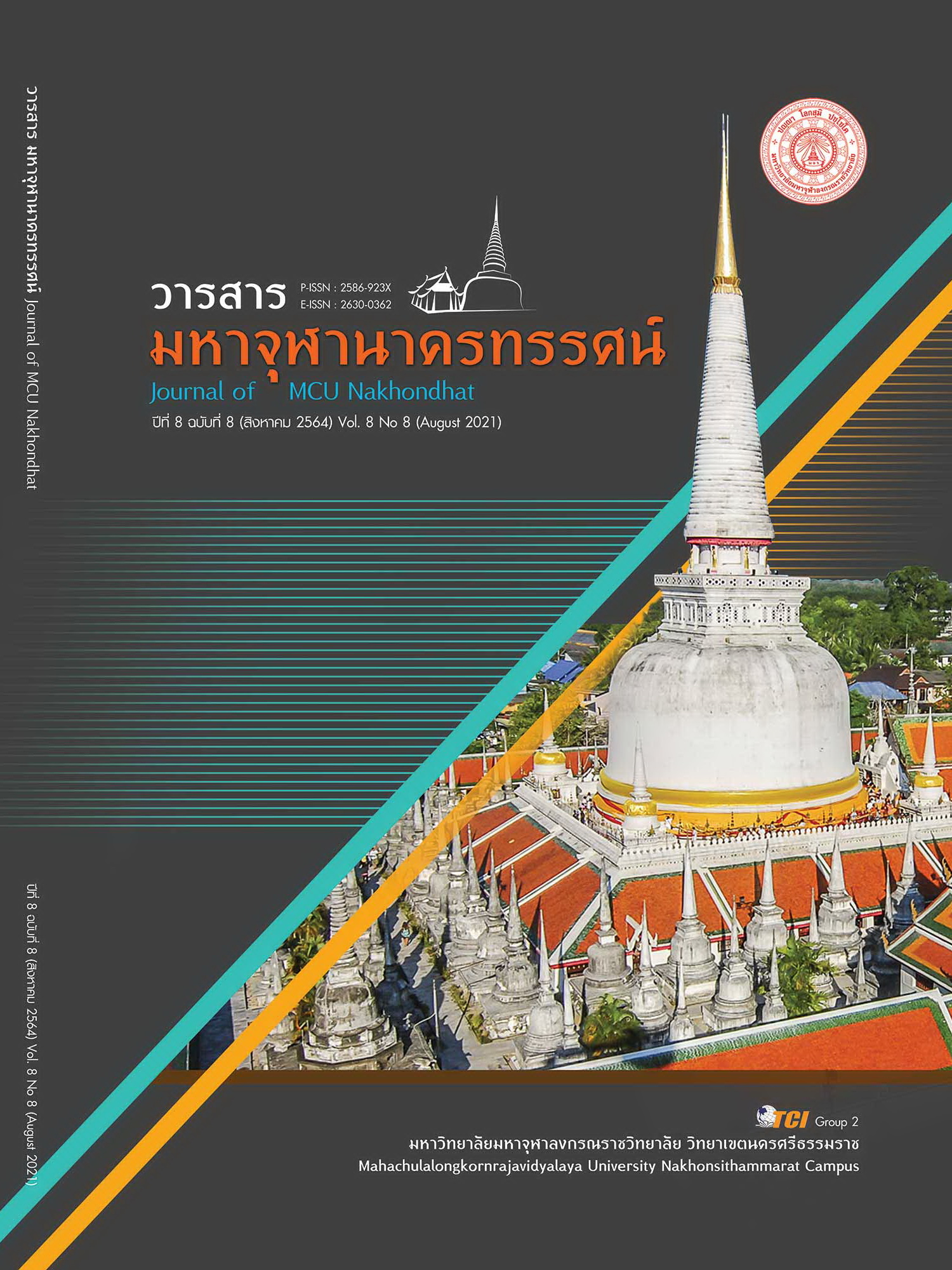PROBLEMS ON DRUG REHABILITATION WITH OTHER OFFENCES ACCORDING TO DRUG REHABILITATION ACT B.E. 2545
Main Article Content
Abstract
The objectives of this research article are to study the concept, theory and the restriction of drug rehabilitation with other offences according to Drug Rehabilitation Act B.E. 2545 by comparing with other foreign drug rehabilitation laws and analyzing those problems in order to improve the law. It is a qualitative research from law books, research documents, rules of the Supreme Court and relating thesis as well as credible internet sources by using analysis and comparison methods on Thai and foreign laws in order to adapt the law. According to the restriction of Drug Rehabilitation Act B.E. 2545, a person who is suspected of or being prosecuted for other offences punishable by imprisonment or who is serving imprisonment is prohibited from rehabilitation. Being excepted from appropriate treatment during prosecution of other offences has resulted in many issues as well as the attempt to avoid rehabilitation which leads to the failure to deal with drug abuse. The study finds that the restriction of Drug Rehabilitation Act B.E. 2545 is incompliant with rehabilitative theory, the principle of drug abuser rehabilitation and the principle of presumption of innocence. Furthermore, the law has no intention to eliminate a repeat offender but the spirit of the law is to give the abuser a right and appropriate treatment. In other foreign countries such as Malaysia and Rhode Island (USA), such restriction does not exist. Therefore, provisions on Drug Rehabilitation Act B.E. 2545 should be amended by obliging drug abuser to receive the treatment during the prosecution of other offences even though he is suspected of or being prosecuted for other offences punishable by imprisonment.
Article Details
References
กองพัฒนาการฟื้นฟูสมรรถภาพผู้ติดยาเสพติด. (2546). รวมกฎหมายพระราชบัญญัติฟื้นฟูสมรรถภาพผู้ติดยาเสพติด พ.ศ. 2545. กรุงเทพมหานคร: กรมคุมประพฤติ.
เกียรติขจร วัจนะสวัสดิ์. (2551). คำอธิบายกฎหมายอาญาภาค 1. (พิมพ์ครั้งที่ 10). กรุงเทพมหานคร: พลสยามพริ้นติ้ง.
ชูทิตย์ ปานปรีชา. (2530). คู่มือสุขภาพจิตสำหรับเจ้าหน้าที่สาธารณสุข. กรุงเทพมหานคร: โรงพิมพ์การศาสนา.
ฐิยาพร กันตาธนวัฒน์. (2560). กระบวนทัศน์การปฏิบัติงานด้านการป้องกันและแก้ไขปัญหายาเสพติดของภาคประชาชน. กรุงเทพมหานคร: จรัลสนิทวงศ์การพิมพ์.
พระราชบัญญัติฟื้นฟูสมรรถภาพผู้ติดยาเสพติด พ.ศ. 2545. (2545). ราชกิจจานุเบกษา เล่ม 119 ตอนที่ 96 ก หน้า 26.
วิทูร จันทร์แจ้งดี. (2556). ปัญหาเกี่ยวกับการฟื้นฟูผู้ติดยาเสพติด. กรุงเทพมหานคร: สถาบันพัฒนาข้าราชการฝ่ายตุลาการศาลยุติธรรม.
อัจฉรียา ชูตินันท์. (2557). อาชญาวิทยาและทัณฑวิยา (พิมพ์ครั้งที่ 2). กรุงเทพมหานคร: วิญญูชน.
Britannica. (2020). Cesare Lombroso. Retrieved December 5, 2020, from https://www.britannica.com/biography/Cesare-Lombroso
Drug Dependants (Treatment and Rehabilitation) Act. (1983). WHO MiNDbank: More Inclusiveness Needed in Disability and Development. Retrieved December 5, 2020, from https://www.mindbank.info/item/4218
Sharda Sekaran. (2015). Drug Use Is Not a Crime in This Country. Drug Policy Alliance Headquarters. Retrieved November 15, 2020, from https://www.drugpolicy.org/blog/drug-use-not-crime-country
State of Rhode Island General Laws. (2020). Title 21 Food and Drug. Chapter 21-28 Uniform Controlled Substances Act, Rhode Island. Retrieved December 5, 2020, from http://webserver.rilin.state.ri.us/Statutes/TITLE21/21-28/INDEX.HTM
United Nation. (1961). Single Convention on Narcotic Drugs. Vienna: United Nation.
United Nation Office on Drug and Crime. (2009). From coercion to cohesion: Treating drug dependence through health care,not punishment. Vienna: United Nation.


